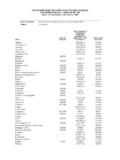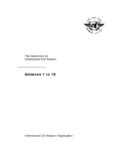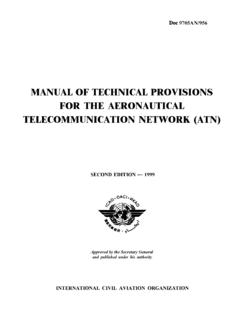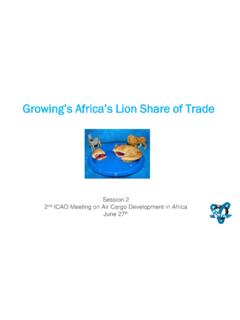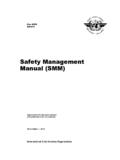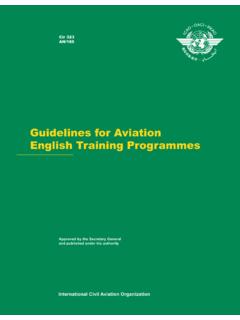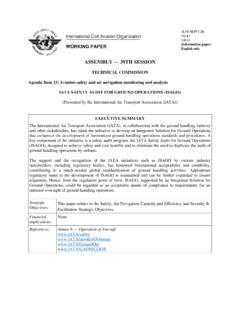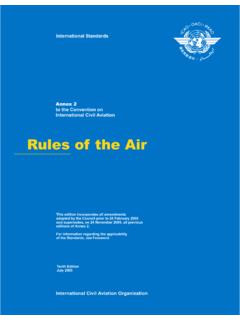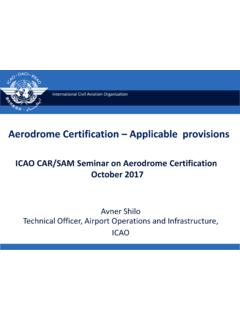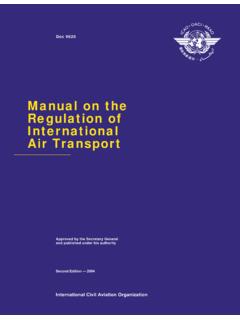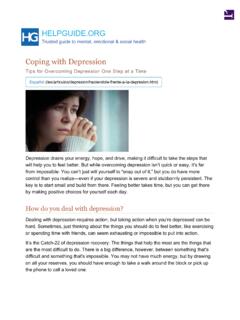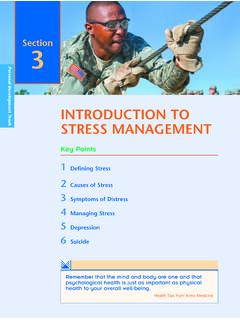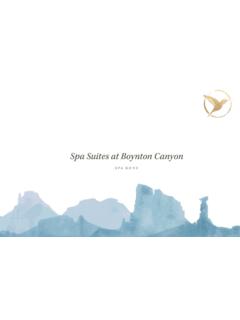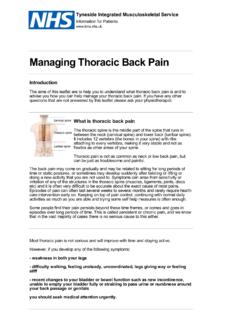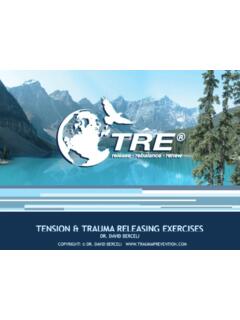Transcription of THE DIRTY DOZEN OF HUMAN FACTORS AND RETURN TO ... …
1 1 THE DIRTY DOZEN OF HUMAN FACTORS AND RETURN TO FLYING WITH COVID Dear Pilots, As we get ready to begin flying with Covid, and the new ways of living, working and flying, we must be vigilant that this additional stress does not increase our tendency of making HUMAN errors. The DIRTY DOZEN refers to twelve of the most common HUMAN error preconditions to accidents or incidents. The concept was developed by Gordon Dupont, in 1993, whilst he was working for Transport Canada, and formed part of an elementary training programme for HUMAN Performance in Maintenance.
2 It has since become a cornerstone of HUMAN FACTORS in Maintenance training courses worldwide, as exemplified in UK CAA CAP715[1]. Though not a comprehensive list of HUMAN error accident precursors; since 1993, the DIRTY DOZEN have been useful to discuss HUMAN error in pilots, cabin crew, air traffic controllers and ramp workers. The aim of this document is to create awareness about how the stress caused by the a) lockdown, b) change in procedures and c) flying in the era of Covid could affect your performance and suggested are some simple mitigating strategies.
3 1. LACK OF COMMUNICATION New Risks Inadequate/ ineffective communication of new rules, SOPs from regulator or airline management or the operators Habit interference - interferes with actions taken eg automatically shaking hands, touching controls etc. Mitigation Have written, clear and relevant information from top down and department wise Rehearse, revise and re-inforce new information at home and at work Maintain constant communication with self and colleagues without letting ego come in the way Use checklists 2 2.
4 COMPLACENCY New Risks Lockdown had changed the way we lived since few weeks Time management and priorities had shifted and a refocus could take time Over confidence and under confidence both need to be avoided Mitigation Do sim checks, read your stuff, get into the work mode, adapt to the new (once old) time frames and activity patterns Do not take yourself for granted, whatever your experience Communicate when in doubt 3. LACK OF KNOWLEDGE New Risks A lot has changed with Covid still around.
5 Airport procedures, passenger screening, first aid and CPR guidelines, cockpit disinfection, checklists, management of passenger illness on board, international rules etc. it s a lot of unlearning and new learning. It takes a while to become habituated to the new information and procedures. While fear it not required, awareness and alertness is a must. Mitigation Information overload must be avoided, have clear checklists Revise the checklists and clarify when in doubt Videos can re-inforce training 4.
6 DISTRACTIONS New Risks Change of living patterns in recent weeks, a sick or unattended family member, increased procedures, new protocols and RETURN to flying after a gap are all distractors. Since new systems take time to be seamlessly established; and the dynamics of the problems may call for further changes, one needs to be mindful, agile and focused. 3 Mitigation Follow SOPs and checklist 5. LACK OF TEAM WORK New Risks The dynamics of the situation are such that everyone is still learning and coping.
7 Mitigation Maintain contact with your seniors and colleagues Have clarity on your role Trust your teammates Discuss and make sure everyone understands and agrees 6. FATIGUE New Risks Readjusting to time zone and flying schedules after such a break could be difficult initially. Obesity, lack of exercise, alcohol and relearning of tasks can also lead to easy physical and mental fatigue. Mitigation Start getting into flight schedule patterns, read and study daily, workout, learn new and stimulating tasks and improve your physical, mental and social well being Look for and address signs of fatigue in yourself and others.
8 7. LACK OF RESOURCES New Risks The financial trough may leave fewer people to do more work. Social distancing may allow less personal interactions. Constant screening, protection and disinfection measures may burden existing resources thus leading to some gaps in the system. 4 Mitigation These are challenging time for everyone operations, finance, management and crew. Co-ordination, co-operation, team work and pro-activeness are useful resources. Have a stand by plan in place. 8. PRESSURE New Risks relief flights, flying only specific routes, fear of contracting the virus, restricted movements during layovers, reduced number of crew, CRM, having a potential carrier or Covid patient on-board are all additional pressures while flying.
9 Mitigation Increase motivation to fly Be willing to do what it takes Increase your tenacity and physical immunity Have procedures in place and follow SOPs Have CRM sessions to discuss the new rules of the game (some old, some new) 9. LACK OF ASSERTIVENESS New Risks Each one is dealing with the new physical and mental situation. Some procedures are longer, some digital and some with more restrictions. It may take time to familiarize and adapt Mitigation Improve your skills of learning, communicating and expressing concerns Approach a peer or a confidant who can understand and assist you Resolve one issue at a time 5 10.
10 stress New Risks Financial losses, anxiety of going back to family after a flight, anger, lack of control, frustration, resentment, lack of confidence, uncertainty of the future and RETURN to normalcy , illness or death of a loved one, a child who has yet to resume schooling or exams, the need to earn, living your passion of flying during such trying times and safety of self and others all add to stress New ways of living at home, at work and in society Wearing PPE suits while flying, required Covid tests, hotel stays pre and post-flights and layover, restricted activities during hotel stay including food Social distancing is the new norm and has caused a distance between us and our happiness.
